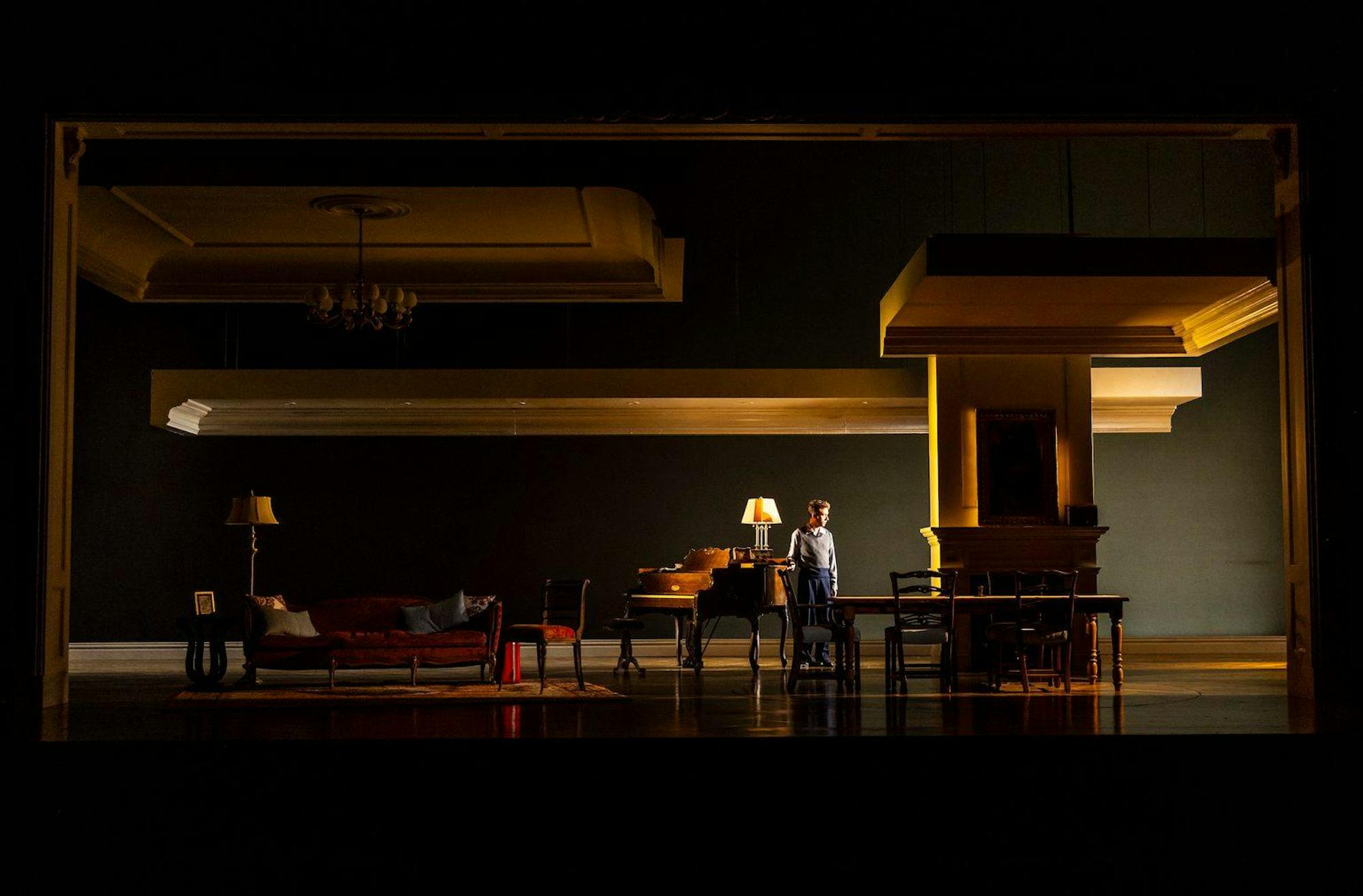When the whole world seems to hate you, where do you go?
This is the question that Joshua Harmon’s “Prayer for the French Republic” (2022) seeks to answer. Playing through Oct. 8 at the Huntington Theatre in Boston, the play tells a sweeping, multi-generational story of a Jewish family grappling with antisemitism in France. Directed by The Huntington’s new Artistic Director, Loretta Greco, “Prayer” follows the Salomon Benhamou family through generations of love, pain and difficult choices.
The story begins in 2016: the Salomon Benhamou family is living in an apartment in Paris, and their distant cousin Molly (Talia Sulla), an American visiting France, is spending a weekend with the family. She’s welcomed by matriarch Marcelle Salomon Benhamou (Amy Resnick), along with her husband Charles Benhamou (Nael Nacer) and their two adult children, Daniel (Joshua Chessin-Yudin) and Elodie Benhamou (Carly Zien). Soon after Molly’s arrival, the family is thrown into a whirlwind of emotions when Daniel comes home with a bloodied face, the target of an antisemitic attack because he was wearing a yarmulke.
Throughout the three-hour play, Harmon’s ambitious script tackles a wide range of topics. Charles’ growing fears for his family amid a surge of antisemitism in France convince him that the family’s only hope for safety is to move to Israel. For the Benhamous, the decision to leave may be one of life or death: “It’s the suitcase, or the coffin,” Charles says, referencing the difficult decisions Marcelle’s ancestors were forced to make in times of danger. The play flashes back and forth between Marcelle’s family in 2016 and her great-grandparents in 1944, who are living in the same Paris apartment, continuing to run their family’s piano store during the French Occupation and anxiously awaiting the return of their son and grandson. The story is both wide-ranging and intensely specific, telling a broad story of Jewish history from the perspective of a single family.
The play is expertly directed by Greco, who makes every moment onstage matter and finds a sense of order in the chaos of the Benhamous’ day-to-day life. Harmon’s complex story is elevated by incredible dialogue that feels natural and effortless without sapping the show of its momentum. The script leaves room for both rapid-fire dinner table discussions and solemn moments of reflection, weaving in both real and imagined history throughout. While many of the show’s conversations tackle serious issues, Harmon leaves plenty of room for comedy in the little moments, like the light-hearted flirtation between Daniel and his (distant) cousin Molly or the sibling rivalry between Daniel and Elodie.
The show is adeptly narrated by Marcelle’s brother Patrick (Tony Estrella), who steps in and out of the world of the play, speaking directly to the audience in the opening scene. However, his banter with Marcelle reminds us that even if he’s an omnipresent narrator, he is foremost a brother who doesn’t always get along with his sister. Although the entire 11-member ensemble deserves praise, Resnick and Zien give two of the best performances as the protective mother Marcelle and rebellious daughter Elodie, respectively. The hostility between Marcelle and Elodie is evident throughout the entire show, and while they don’t always find common ground, their familial bond ultimately remains strong. Zien’s big moment comes in Act Two when she lectures Molly on her privilege in a fast-paced political rant. Resnick, however, is the anchor of the show, connecting the strands of the family’s past and present with a powerful, emotionally charged performance.
On paper, the show is beautiful and ambitious, but it becomes so much more intricate in the theatre. Christopher Akerlind’s lighting completely transforms each scene as it takes audiences from a simple family home to a synagogue. Andrew Boyce’s set seems simple at first — no walls, just a few scattered pieces of furniture on a large stage — but Greco and the actors make the most of the space with long stage crosses and simultaneous scenes in both the past and present. The scenes in 1944, in particular, tell much of the story through visuals like a table cluttered with newspapers or a knowing look from one family member to another.
At the conclusion of the show, the entire set slowly disappears, save for Marcelle and the family’s piano. Slowly, Marcelle’s ancestors take the stage, standing in a line as they all begin singing the “La Marseillaise,” the French national anthem. Their voices intertwine with one another as Marcelle finally steps away from the piano. This final moment of the show is her declaration, to us and the world, that the Salomons will continue to survive.
So, where exactly do you go when the entire world seems to hate you? There is no one answer; it changes with time. But one thing that will never change is that you turn to your family, or to those who stand with you when no one else does. When you do this, you’ll always manage to return home.






